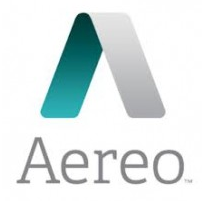Aereo case headed to U.S. Supreme Court after broadcasters lose another appeal
Television broadcasters are considering whether to take their case against Aereo to the U.S. Supreme Court. Last week, the U.S. Second Circuit Court of Appeals in New York ended the broadcaster's case by issuing its final ruling that Aereo has not violated the broadcasters copyright. Perhaps emboldened by the ruling, the company has continued with its nationwide expansion plans, announcing it will expand the service to Utah residents on August 19th.
Immediately following the court's ruling, Fox hinted it might take the case to the nation’s highest court.
“The 2nd circuit’s denial of our request for an ‘en banc’ hearing, while disappointing, was not unexpected. We will now review our options and determine the appropriate course of action, which includes seeking a hearing in the U.S. Supreme Court and proceeding to a full trial on the merits of the case,” said Fox in a statement after the appeals court’s ruling.
The appeals court found that a U.S. District judge was right last year to refuse broadcasters an injunction against Aereo.
“We conclude that Aereo’s transmissions of unique copies of broadcast television programs created at its users’ requests and transmitted while the programs are still airing on broadcast television are not ‘public performances’ of the Plaintiffs’ copyrighted works under Cablevision,” said Judge Christopher Droney writing for the majority.

Aereo rents its customers a tiny, thumbnail-sized antenna to receive local on-air programming. The signal picked up by the antenna is fed to the web, allowing users to watch the programming on any computing device. Aereo also includes software that emulates a DVR, which allows subscribers to store programming on a cloud for later viewing. The service costs between $8 and $12 per month.
Fox Television Stations Inc., Twentieth Century Fox Film Corporation, WPIX INC., Univision Television Group Inc., the Univision Network Limited Partnership, WNET and the Public Broadcasting Service brought the broadcasters’ lawsuit.
The professional video industry's #1 source for news, trends and product and tech information. Sign up below.
Legal action in the Aereo case is coming fast and furious, now extending to Aereo’s second service city, Boston. Hearst’s WCVB-TV has filed a lawsuit in U.S. District Court in Boston, alleging that Aereo is violating federal copyright law by rebroadcasting the station’s programming without permission.
“Aereo’s business and technology stand in violation of, and threaten to undermine, the carefully balanced statutory and regulatory scheme set up for the broadcast industry,” said WCBV’s complaint the complaint.

In early May, Aereo filed a lawsuit designed to prevent future lawsuits by CBS. CBS had said it also planned to file a new lawsuit in the federal district court in Boston. Aereo’s suit argued that the broadcasters cannot seek a “do-over” in in multiple courts.
“It is not proper for parties to attempt to re-litigate claims that are pending, let alone already decided,” Aereo said in its case. “Among other reasons, it would be highly inefficient and a waste of judicial resources.”
